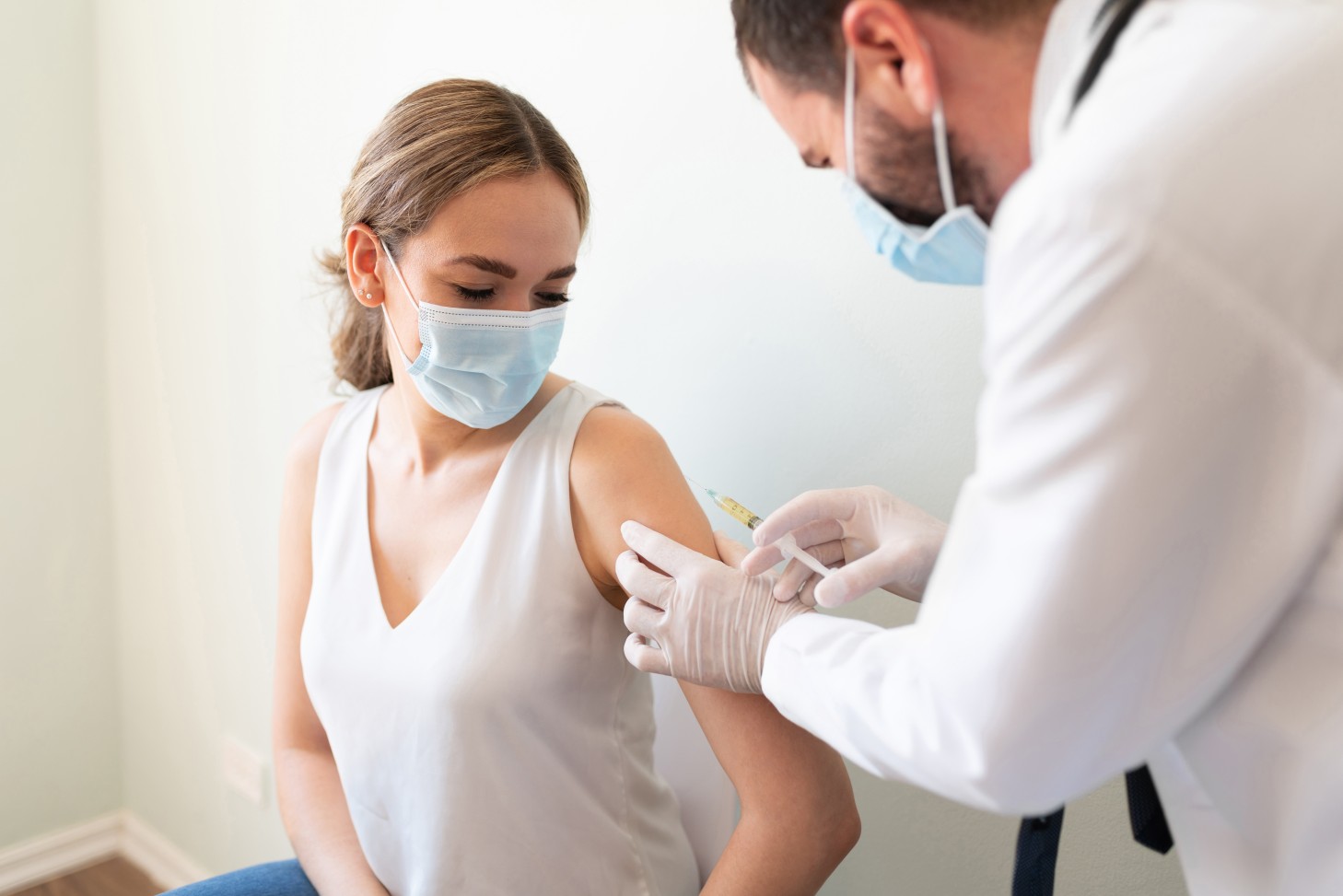Here’s how to conquer your fears of being vaccinated
Medical professionals suggest several ways you can cope

Many people avoid getting vaccinated because they suffer from needle phobia. Fear takes control, causing strong anxiety and feelings of dread.
That fear of needles, or trypanophobia, is taking on a new dimension during the COVID-19 pandemic. It is causing many who see the benefits of being vaccinated to resist doing so. They simply cannot bring themselves to go to a pharmacy, doctor or vaccination center to obtain the vaccine.
Read More »
Some sufferers even feel aggressive, either emotionally or physically, she adds.
Not unusual
For some people even thinking about vaccinations, hearing about them, or seeing people being vaccinated up close on television can arouse feelings of anxiety.
The fear is not unusual; almost all of us fear something, whether it is flying, heights, spiders or confined areas. For those suffering from trypanophobia the fear happens to be needles.
Not just vaccinations
Needle phobia is not confined to vaccinations.
Nurses draw blood using a needle to conduct tests. Insulin is injected in diabetics. Needles are often used in surgical procedures and other medical interventions.
Causes are not clear
Medical experts are unsure what causes needle phobia. Some believe that traumatic experiences suffered in the past, genetics, or even changes in the chemistry of the brain play a contributory role.
Whatever the cause, those who suffer from needle phobia will tell you it is real and that they cannot explain it in rational terms.
Researchers at the University of Michigan conducted an analysis of needle phobia. They found that between 20 and 30 percent of adults expressed a concern about needles. For some, the phobia was mild. For others, the anxiety was so strong that they felt that they needed to seek medical assistance.
Ways to cope
There is hope, however.
Medical professionals at the Edward-Elmhurst Health system point to several ways in which those who fear needles can obtain help and conquer their anxiety.
BEFORE VACCINATION
Should you suffer from needle phobia, here are steps you can take before you get the vaccine.
• Find professional help.
Ask for help from a therapist who has the experience and knowledge to help those with phobias, such as that of needles.
• Ask about medication.
Some people can benefit from an anesthetic that is applied on their arms to numb the area before the shot is administered.
• Talk to those who have had the shot.
Ask others about their experience, or look at photographs of people who have had the shot. Doing so can be reassuring and will help you associate the vaccine with positive feelings.
• Take deep breaths.
Breathing exercises can help you to relax before receiving the vaccination and will help you to cope when receiving it, too.
• Concentrate on the vaccine’s benefits.
Remind yourself that millions of people around the world have successfully had the vaccine and that it is safe and an effective tool to protect not only you but those around you from contracting a virus that can be deadly.
• Register in advance.
Some people have found that by putting their names down to receive the vaccine at a certain time acts as a strong incentive to actually go and get it done at that time.
DURING VACCINATION
When you actually take that big step and go to become vaccinated, you might want to calm your anxiety at that time.
Here are steps you can take to do so.
• Take a support person with you.
If the vaccination center will not allow someone to accompany you, ask whether they could make an exception in your case. In any event, the person could go with you right until the place where the vaccine is administered. Having someone drive you to the vaccination center, for example, will help to reassure you on the way and prevent you from backing out at the last minute.
• Tell the nurse.
The nurse will be able to explain what the steps are and give you a sense of control.
• Tense your muscles.
If you feel faint, making a fist or tensing your muscles can help. You could even ask the nurse if you could receive the shot lying down if that would help.
• Avoid looking.
There is no need to look at the needle; it will only serve to increase your anxiety. Turn the other way.
• Allow yourself to be distracted.
Listen to a song on your phone or watch a video if that is possible. Breathe deeply.
Think positive
It is alright to be nervous, says clinical psychologist Sierzega.
When it is over, talk about the experience in a positive way. Not only will that help others who might suffer the same fears that you do, but it also will be important when you return for a second shot, she adds





